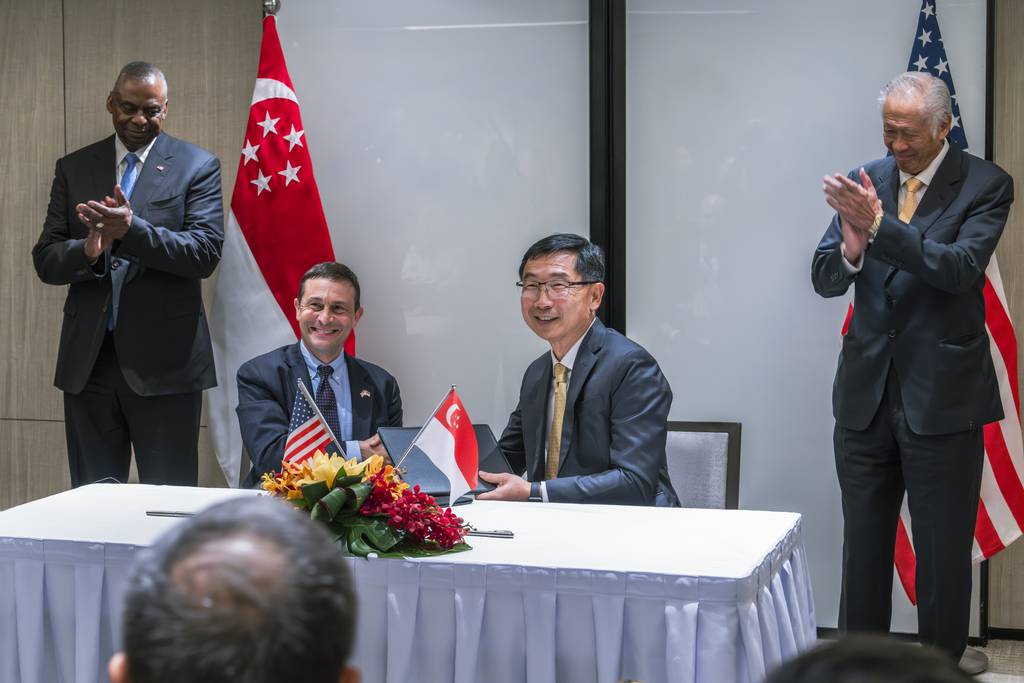SINGAPORE — The United States and Singapore have agreed to cooperate more closely on defense innovation, as part of a broader Pentagon effort to partner the U.S. defense industry with countries in the Indo-Pacific region.
The person who signed the agreement on the U.S. side was Doug Beck, director of the Defense Innovation Unit, which supports the Department of Defense in introducing commercial technologies.
In line with this mission, the new memorandum commits the two countries to working together to employ technologies with both commercial and military applications, with a primary focus of this work being maritime security and counter-drone systems, according to a Pentagon statement.
Part of the agreement includes a “joint agenda” on ship-launched anti-drone technology, while another focuses on making systems more resistant to jamming and other electronic warfare capabilities. Beck said in an interview that the agenda is a way to jumpstart the two countries' efforts.
Dates for each challenge have yet to be set, but Beck said they're both aiming to launch within about a month. The U.S. and Singapore will agree on specific goals and criteria, then allow companies from both countries to apply. From there, the two sides will decide what contracting tools to use to buy the offerings.
“That will create winners that will be built into each of our systems,” he said.
These competitions are similar to one held earlier this year by the United States, Britain and Australia as part of AUKUS, a defense pact focused on nuclear submarines and other advanced technologies, in which defense companies from the three countries competed on a problem focused on electronic warfare.
Beck was joined by U.S. Secretary of Defense Lloyd Austin who met with Singapore Prime Minister Lawrence Wong at the Shangri-La Dialogue, a security summit bringing together government officials from the Indo-Pacific region and organized by the London-based think tank, the International Institute for Strategic Studies.
One of the Washington's main messages at the conference, as has been the case throughout President Joe Biden's term, was to connect the US defense industry with other countries.
There have been several such deals over the past few years: General Electric agreed last year to build fighter engines in India for the Indian Air Force; Japan and the United States agreed to cooperate on developing glide-phase interceptors to counter hypersonic missiles; and U.S. and Australian defense companies are working closely together under AUKUS.
The war in Ukraine has made such collaborations a higher priority, highlighting America's own problems with its ability to rapidly ramp up production of major weapons and innovate to meet modern challenges, including electronic warfare.
Beck said he first spoke with his Singapore partner last fall, shortly after taking the job, and he pointed to the agreement, which was reached seven months later, as evidence of how quickly the partnership can move forward.
“I said let's make something happen,” Beck said.
Noah Robertson is a Pentagon reporter for Defense News. He previously covered national security for The Christian Science Monitor. He earned a bachelor's degree in English and political science from the College of William and Mary in his hometown of Williamsburg, Virginia.


